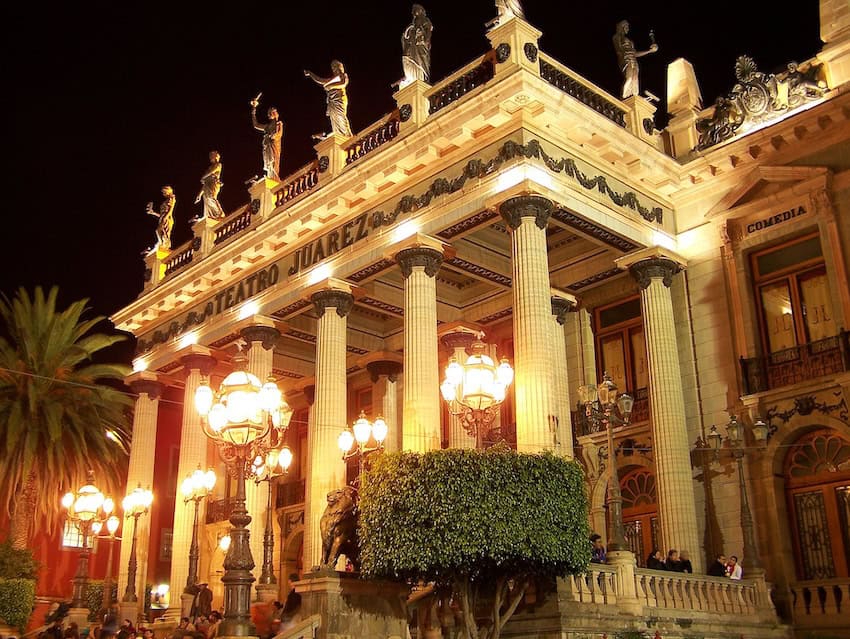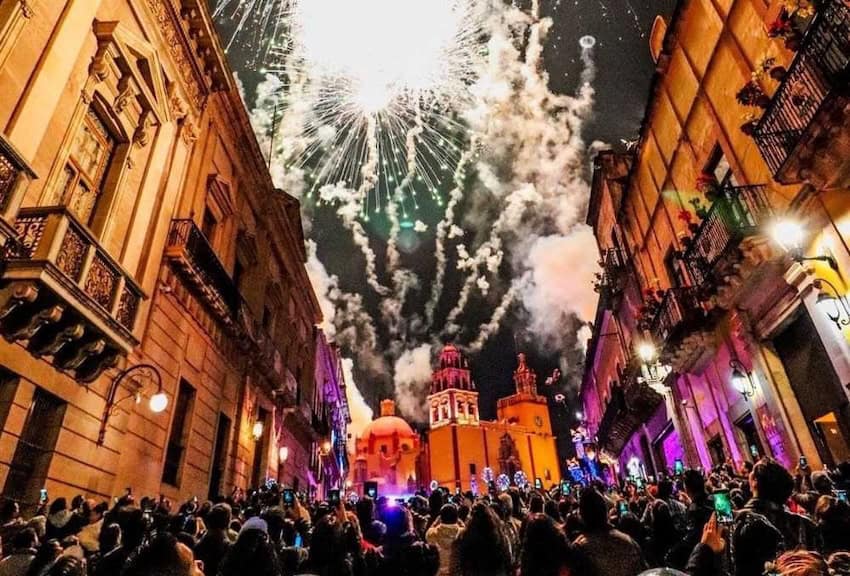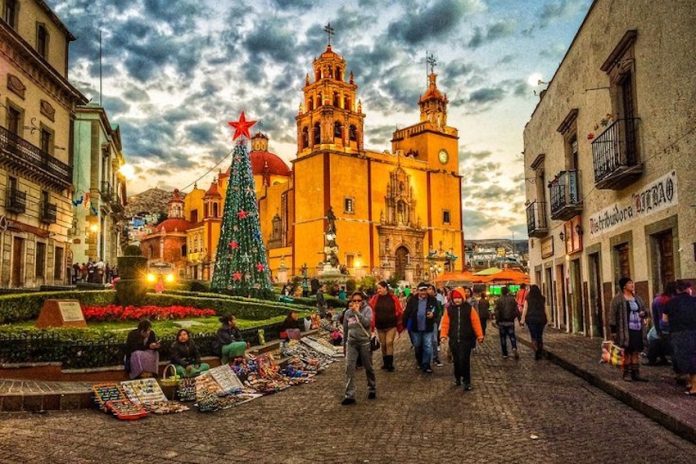I’m decorating our artificial Christmas tree, which I bought at Guanajuato’s Embajadoras market almost 20 years ago. Every year, we take the tree out of its box, place it in a corner of the sala, and hang our ornaments.
Some are Mexican, bought from a local street vendor or in Tlalpujahua, a Pueblo Mágico in Michoacán famous for its artisanal Christmas ornament industry. Others are faded and worn, dating back to my childhood. My final stage of tree-trimming is adding the tinsel that I use year after year. I love its look, even if it gets everywhere and I’m still finding it months after we take down the tree.
Christmas in Guanajuato

In Guanajuato, the Christmas season gets off to a rollicking start on Dec. 12, the feast day celebrating Our Lady of Guadalupe, Mexico’s patron saint. At the Santuario de Guadalupe, the day is filled with prayer, music, food vendors and riotous celebration. We go early, before the crowds, to watch the faithful carrying offerings of food and flowers . Some arrive on their knees, crawling across the tiled floor of the church. While I’m not a believer, I am deeply moved by their expression of faith.
Throughout the month of December, Christmas-themed concerts and choirs are held at Guanajuato’s iconic Teatro Juárez and local churches. Many people host private parties, far more than my husband Barry and I ever went to when we spent Christmas in California. The foreign community seems to get caught up in the sense of festivity that accompanies the season here.
Celebrating when you’re not Mexican
Many resident foreigners celebrate Christmas with their adopted Mexican family. Barry and I used to do that, but we are early risers and can’t stay up til 3 a.m., for the post-mass feast. Somehow, over the years we’re learned to sleep through the fireworks that Mexicans light off during holidays — and many other days — and which produce ear-shattering bangs.

On Christmas morning, we always lead a gentle hike for anyone interested, and at least 10 to 12 grateful people show up, happy to have a chance to be active. Some folks turn into future friends and others are simply passing through, but everyone seems to appreciate a group hike. In the afternoon, we stroll around and people-watch.
In honor of Barry’s British roots, we celebrate Boxing Day on Dec. 26 by hosting a gathering at our home. Our guests always want to know what Boxing Day is, of course. The origins are still debated, but most people agree that it was the day in Britain when servants would collect their yearly bonuses, gifts and leftover foods delivered in boxes.
In my crockpot I prepare homemade wassail, which tastes similar to Mexican ponche. But the treat that disappears the fastest is my sherry trifle, a recipe I inherited from my Welsh mother-in-law. Neither foreigners nor Mexicans have a clue what a treat they’re in for. I admit yellow cake mix and packaged custard doesn’t sound especially inspiring, but everyone loves it. Trifle is one of those treats that are supposed to taste better the longer they sit around, but mine has never lasted long enough to know.
The right way to do Christmas
After many years of spending the Christmas season in Mexico, I can see my own culture more clearly, and I pick and choose which parts of it I want to include. To a U.S. American, it’s a relief that the heavy lifting of Christmas is over before it even starts in the United States. In fact, Christmas in Mexico has an uncynical innocence that reminds me of my childhood.
Spending Christmas in a culture that is not our own helps Barry and I let go of any latent Christmas scripts still hanging around. We can’t do Christmas ‘right’ in Mexico because the script doesn’t work here. We decorate our tree, walk in the hills, and sing “Oh Little Town in Bethlehem” in Spanish. While we will never be Mexican, we are accepted and welcomed here, and so is our Christmas.
Louisa Rogers and her husband Barry Evans divide their lives between Guanajuato and Eureka, on California’s North Coast. Louisa writes articles and essays about expat life, Mexico, travel, physical and psychological health, retirement and spirituality. Her recent articles can be found on her website, authory.com/LouisaRogers.
